Teeth are very critical to our health and appearance. Our teeth allow us to chew our food thoroughly, while also aiding in digestion. Teeth also help us to choose a variety of foods, thereby ensuring proper nutrition. During chewing, the teeth work as a unit with the front teeth cutting and the back teeth grinding the food. Front teeth are pointy and sharp with biting forces of 150 lb.
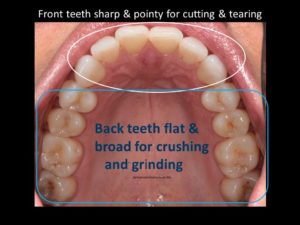
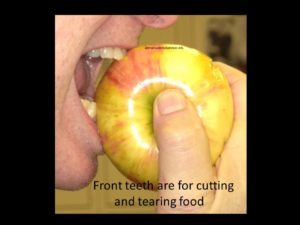
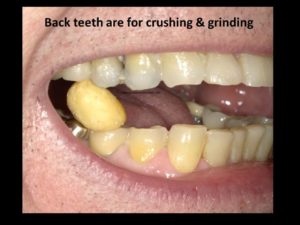
Back teeth are flat and broad with biting forces of 285. Many people don’t consider their back teeth important because they do not show. They will have them extracted. This causes 3 adverse effects. First the front teeth begin to chip and wear, An analogy would be using your sharp cutting knife to grind & crush nuts. This would cause your knife to chip & wear. 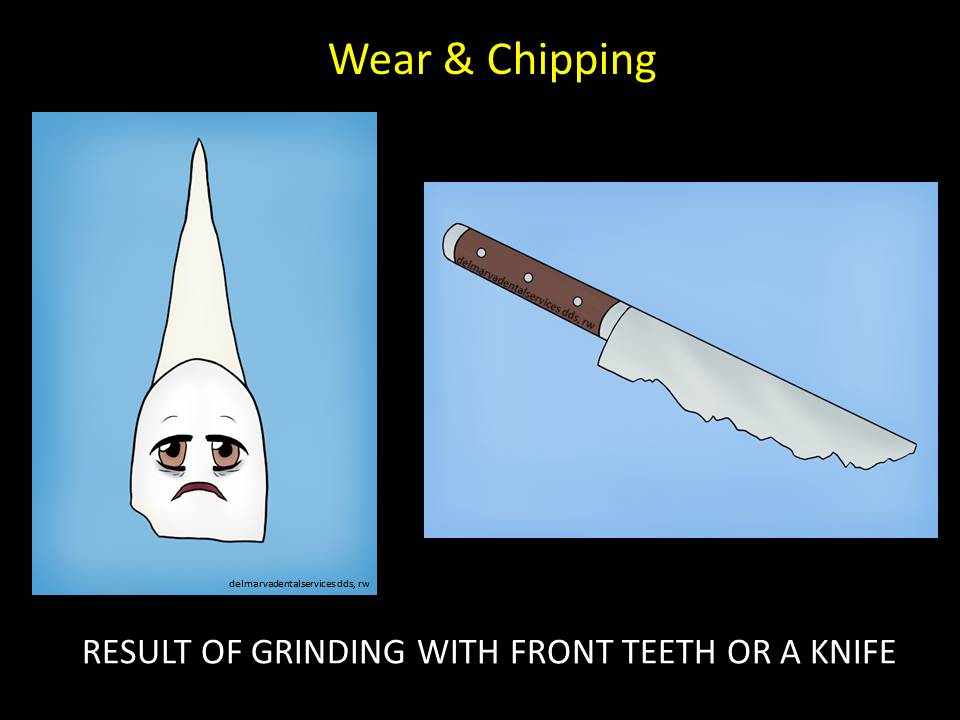
When enough back teeth have been lost; people come to the dentist because their front teeth are wearing and chipping.

The second thing that happens is your teeth begin to shift. The loss of even one tooth can cause the remaining teeth to shift.

The third thing that occurs when you begin to lose more and more teeth is facial collapse. The loss of all teeth can be quite debilitating resulting in malnutrition. This occurs frequently in nursing homes. Teeth make our faces fuller by supporting our jawbones and our facial muscles. This can be seen in people with no teeth when the nose and chin are too close together resulting in a “witches” nose and chin. It can also be seen in women with old dentures when the upper lip curls under. They try to compensate by putting lipstick above the hidden lip.


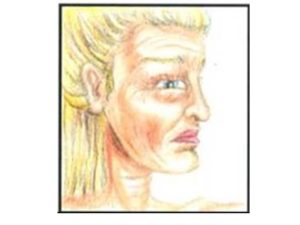
The ancient Phoenicians replaced missing teeth with ivory attached to the adjacent teeth with gold wire strands in 500 B.C. Today teeth can be replaced in three ways: dental implants, fixed dental bridges, and removable dentures. Generally, the long-term success rate and comfort is best to worst in the order above. Of course each situation is unique and requires a thorough diagnosis.
